Highlights
Perfect Corp. Founder Talks About YouCam And Its Place In Beauty 3.0
 Founder and CEO of Perfect Corp., Alice Chang, spoke at the CEW Connected Consumer Conference about ‘Beauty 3.0’, the company’s name for what it sees as the future of beauty. It will, she says, combine more personalized and proactive tech involving human touch characteristics, artificial intelligence and augmented reality. The result will be an extremely accurate virtual try-on experience. Perfect Corp. and its YouCam apps are now used by some 200 beauty brands and 700 million users. The company also encourages users to try YouCam’s set of virtual apps, free of charge, to enable them to test their features.[Image Credit: © Perfect Corp]
Founder and CEO of Perfect Corp., Alice Chang, spoke at the CEW Connected Consumer Conference about ‘Beauty 3.0’, the company’s name for what it sees as the future of beauty. It will, she says, combine more personalized and proactive tech involving human touch characteristics, artificial intelligence and augmented reality. The result will be an extremely accurate virtual try-on experience. Perfect Corp. and its YouCam apps are now used by some 200 beauty brands and 700 million users. The company also encourages users to try YouCam’s set of virtual apps, free of charge, to enable them to test their features.[Image Credit: © Perfect Corp]
Nars Cosmetics Is Seeking To Capture Consumer Data And Use More Beauty Tech In 2019
 Shiseido brand Nars Cosmetics is trying to balance the needs of those looking for human interaction in beauty shopping and others that like the speed and convenience of direct-to-consumer e-commerce. ‘Clienteling’ is a key focus, and it wants its sales associates and makeup artists to collect consumer data when they speak to them, and encourage them to use the data to make the experience more personal for the shopper. The brand sees 2019 as a big tech year for the company, with trials of virtual try-ons and artificial intelligence applications, such as for skin tone data. [Image Credit: © NARS Cosmetics]
Shiseido brand Nars Cosmetics is trying to balance the needs of those looking for human interaction in beauty shopping and others that like the speed and convenience of direct-to-consumer e-commerce. ‘Clienteling’ is a key focus, and it wants its sales associates and makeup artists to collect consumer data when they speak to them, and encourage them to use the data to make the experience more personal for the shopper. The brand sees 2019 as a big tech year for the company, with trials of virtual try-ons and artificial intelligence applications, such as for skin tone data. [Image Credit: © NARS Cosmetics]
Clinique iD Provides Customized Hydration To Address Specific Skin Concerns
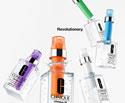 Now available on Clinique.com is Clinique iD, a personalized system for skin hydration based on its Dramatically Different Moisturizer skin lotions. Visitors to the site first choose from one of the lotions as a base, then add one of five active concentrate cartridges to mix with it. The cartridges fit inside the selected moisturizer and contain a formulation designed to address the user’s skin concern, such as irritated skin, wrinkles, or skin fatigue. Clinique’s approach may go some way towards addressing the issue that women can’t find a moisturizer that’s right for their face: the brand ran a survey of US women and found that 86 percent of respondents cited this as a concern. To help users choose the right blend, Clinique will next year roll out online and in stores the digital Clinical Reality questionnaire. A 125ml bottle is priced at $39 and should last three months with the recommended twice-daily application. [Image Credit: © Clinique Laboratories, llc]
Now available on Clinique.com is Clinique iD, a personalized system for skin hydration based on its Dramatically Different Moisturizer skin lotions. Visitors to the site first choose from one of the lotions as a base, then add one of five active concentrate cartridges to mix with it. The cartridges fit inside the selected moisturizer and contain a formulation designed to address the user’s skin concern, such as irritated skin, wrinkles, or skin fatigue. Clinique’s approach may go some way towards addressing the issue that women can’t find a moisturizer that’s right for their face: the brand ran a survey of US women and found that 86 percent of respondents cited this as a concern. To help users choose the right blend, Clinique will next year roll out online and in stores the digital Clinical Reality questionnaire. A 125ml bottle is priced at $39 and should last three months with the recommended twice-daily application. [Image Credit: © Clinique Laboratories, llc]
COVERGIRL Unveils Its Flagship Store In New York’s Times Square
 The end of November saw the opening of the COVERGIRL TIMES SQUARE flagship store, the brand’s first permanent outlet. It’s on two levels and offers shoppers a virtual greeter, called Olivia, who can give beauty advice or direct you to a product you want. There are also Holition augmented reality stations for virtually try-ons, a customization station for customers to personalize products, and a makeup and advisory service from COVERGIRL BFFs (Brow Friends Forever). [Image Credit: © Coty Inc]
The end of November saw the opening of the COVERGIRL TIMES SQUARE flagship store, the brand’s first permanent outlet. It’s on two levels and offers shoppers a virtual greeter, called Olivia, who can give beauty advice or direct you to a product you want. There are also Holition augmented reality stations for virtually try-ons, a customization station for customers to personalize products, and a makeup and advisory service from COVERGIRL BFFs (Brow Friends Forever). [Image Credit: © Coty Inc]
Dollar Shave Club Is Launching Blueprint, A Male Fragrance Line
.jpg&width=125&height=125) Dollar Shave Club, the Unilever-owned subscription-based direct-to-consumer brand, continues to extend the line beyond its male grooming origins, with a line of six fragrances, called Blueprint. Founder and CEO, Michael Dubin, said fragrance for men is a part of what men want in the bathroom to get ready for the day ahead, and most of DSC’s members have more than one cologne. Fragrance developer Ann Gottlieb said DSC’s fragrances are premium products at affordable price. DSC offered existing customers samples of fragrances in their DSC boxes, and the new products will become a part of the brand’s full-service offering, which it has been testing. DSC is also testing physical retail with vending machines selling trial-size versions of the brands’ products. [Image Credit: © Dollar Shave Club]
Dollar Shave Club, the Unilever-owned subscription-based direct-to-consumer brand, continues to extend the line beyond its male grooming origins, with a line of six fragrances, called Blueprint. Founder and CEO, Michael Dubin, said fragrance for men is a part of what men want in the bathroom to get ready for the day ahead, and most of DSC’s members have more than one cologne. Fragrance developer Ann Gottlieb said DSC’s fragrances are premium products at affordable price. DSC offered existing customers samples of fragrances in their DSC boxes, and the new products will become a part of the brand’s full-service offering, which it has been testing. DSC is also testing physical retail with vending machines selling trial-size versions of the brands’ products. [Image Credit: © Dollar Shave Club]
A Facebook Chatbot Is Driving Traffic And Sales For Wander Beauty
Industry Expert Pinpoints Data From D2C As The Holy Grail For Brands
 One industry expert claims that D2C brand marketers are kicking traditional brands’ butts. Terry Kawaja of Luma Partners recently gave his “Fire Your CMO” presentation to the Association of National Advertisers' Masters of Marketing Conference. D2C brands are winning, he says, because of their convenience-focused distribution models and innovative approaches to accessing consumer data. They are demonstrating that consumers are happy to provide data if there is value in doing so, such as easier shopping or a superior experience. They are also proving that it’s more important to know why someone bought something than what it was, especially as customer preferences are fluid, even within the same day. When brands understand that, he says, they will start to know their customers. They can then engage with them, and build their trust and loyalty.[Image Credit: © LUMA Partners LLC]
One industry expert claims that D2C brand marketers are kicking traditional brands’ butts. Terry Kawaja of Luma Partners recently gave his “Fire Your CMO” presentation to the Association of National Advertisers' Masters of Marketing Conference. D2C brands are winning, he says, because of their convenience-focused distribution models and innovative approaches to accessing consumer data. They are demonstrating that consumers are happy to provide data if there is value in doing so, such as easier shopping or a superior experience. They are also proving that it’s more important to know why someone bought something than what it was, especially as customer preferences are fluid, even within the same day. When brands understand that, he says, they will start to know their customers. They can then engage with them, and build their trust and loyalty.[Image Credit: © LUMA Partners LLC]
Some New D2C Brands Are Linking Sexual Health And Overall Wellbeing
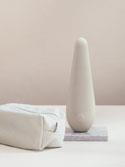
Maude is a online direct-to-consumer ‘sexual wellness’ brand, offering condoms, lubricants and vibrators, as well as items like scented candles. It has also opened a pop-up store in Williamsburg, New York. With sexual health being seen increasingly as crucial for general wellbeing, Maude is one of a number of new brands addressing this market. Others include Hims, for men, and a brand extension for women called, of course, Hers. Moon Juice offers a range of dietary ‘dusts’ that the brand claims can kickstart your libido and improve sexual endurance. Maude is eschewing eroticism in promoting its products, preferring to encourage consumers to see it as a lifestyle brand, highlighting it as an element in overall wellness.[Image Credit: © Maude Group, Inc.]
Baby Dove Launched A Personalized D2C Service For The Holidays
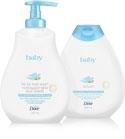
The new holiday season direct-to-consumer campaign from Baby Dove in Canada allows consumers to personalize the packaging via a microsite, ready for home delivery. It’s aimed at gifting for the holidays as well as birthdays and baby showers, and is part of a rollout that also covers the US and UK. Choosing a direct-to-consumer platform allows Dove to engage personally with consumers, gives it access to useful first-party data, and provides Dove with a space for piloting products.[Image Credit: © Unilever]
Customized Hair Care Brand Prose Secures $18 Million Series B Finance
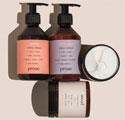 Prose, a direct-to-consumer hair care brand selling customized products, announced closure of a $18 million Series B funding round. The brand launched earlier this year and offers products that address specific hair and scalp requirements, on the basis of a consultation covering the customer’s hair characteristics, lifestyle, environmental exposure, stress, diet, and preferences (such as vegan, gluten-free and fragrance-free). The products are available on prose.com and in some salons. Prose has posted double-digit growth each month and is developing an automated customization system, which should be available by the middle of next year at its new production plant in Brooklyn. The online consultation facility has to date captured half a million customer profiles, each with 135 data points, including customer selfies. [Image Credit: © PerSé Beauty Inc]
Prose, a direct-to-consumer hair care brand selling customized products, announced closure of a $18 million Series B funding round. The brand launched earlier this year and offers products that address specific hair and scalp requirements, on the basis of a consultation covering the customer’s hair characteristics, lifestyle, environmental exposure, stress, diet, and preferences (such as vegan, gluten-free and fragrance-free). The products are available on prose.com and in some salons. Prose has posted double-digit growth each month and is developing an automated customization system, which should be available by the middle of next year at its new production plant in Brooklyn. The online consultation facility has to date captured half a million customer profiles, each with 135 data points, including customer selfies. [Image Credit: © PerSé Beauty Inc]
Oral Care Brand quip Is Going Omnichannel, Closed $40 Million Funding Round
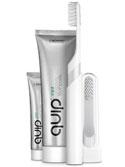 Oral care subscription startup quip has announced venture funding of $40 million, supported by its debut in Target, bringing its total funding to date to more than $60 million. The brand has sold over a million of its electric toothbrushes via its direct-to-consumer site in the three years since its launch, and added nationwide distribution in Target in October 2018. It has also acquired Afora, a New York dental care membership plan, in order to offer a less expensive alternative to dental insurance. The acquisition was made by quip Labs, a venture arm for new oral care opportunities. quip’s co-founder and CEO, Simon Enever, said the brand has been working closely with its dental professional network to provide patients with full access to dental products and services in a simpler and more enjoyable way. quip is also looking at other ways to grow subscribers, such as the launch of “Practice program”, in which providers can join quip’s free network to offer quip products and subscription services as a way of attracting new patients. [Image Credit: © Quip NYC Inc.]
Oral care subscription startup quip has announced venture funding of $40 million, supported by its debut in Target, bringing its total funding to date to more than $60 million. The brand has sold over a million of its electric toothbrushes via its direct-to-consumer site in the three years since its launch, and added nationwide distribution in Target in October 2018. It has also acquired Afora, a New York dental care membership plan, in order to offer a less expensive alternative to dental insurance. The acquisition was made by quip Labs, a venture arm for new oral care opportunities. quip’s co-founder and CEO, Simon Enever, said the brand has been working closely with its dental professional network to provide patients with full access to dental products and services in a simpler and more enjoyable way. quip is also looking at other ways to grow subscribers, such as the launch of “Practice program”, in which providers can join quip’s free network to offer quip products and subscription services as a way of attracting new patients. [Image Credit: © Quip NYC Inc.]
Beautycounter Uses Its New Store To Advocate For Clean Beauty
 Direct-to-consumer beauty brand Beautycounter has opened its first physical store, on New York’s Prince Street. The brand is selling its 150 product line in the store, and providing a consumer experience that aims to place the brand closer to its buyers. Founder and CEO Gregg Renfrew says that the brand’s “story is best told person-to-person.” Visitors are invited to use a phone booth within the store to contact members of Congress to voice their support for changes to beauty regulations. The store also provides information on the brand’s ingredients as well as those the brand refuses to use, raising the profile of the clean beauty movement, a campaign the brand supports. [Image Credit: © COUNTER BRANDS, LLC.]
Direct-to-consumer beauty brand Beautycounter has opened its first physical store, on New York’s Prince Street. The brand is selling its 150 product line in the store, and providing a consumer experience that aims to place the brand closer to its buyers. Founder and CEO Gregg Renfrew says that the brand’s “story is best told person-to-person.” Visitors are invited to use a phone booth within the store to contact members of Congress to voice their support for changes to beauty regulations. The store also provides information on the brand’s ingredients as well as those the brand refuses to use, raising the profile of the clean beauty movement, a campaign the brand supports. [Image Credit: © COUNTER BRANDS, LLC.]
D2C Male Grooming Brand Scotch Porter Launches CDB Beard Products
 Scotch Porter, a direct-to-consumer male grooming brand, has launched a new beard product collection featuring cannabidiol (CBD). The limited edition range comprises a wash, conditioner, balm and serum. The brand’s founder and CEO, Calvin Quallis, highlighted the opportunity to use CBD in grooming to help with skin conditions such as eczema, flakiness and irritation. The two-year old brand posted sales of over a million dollars in its first year. The move is aligned with broader trends in consumer products as products containing CBD become more accepted by consumers. The brand is focusing on influencer marketing to promote the new products, and hopes influencers will help mitigate the stigma surrounding CBD. [Image Credit: © SCOTCH PORTER BRAND]
Scotch Porter, a direct-to-consumer male grooming brand, has launched a new beard product collection featuring cannabidiol (CBD). The limited edition range comprises a wash, conditioner, balm and serum. The brand’s founder and CEO, Calvin Quallis, highlighted the opportunity to use CBD in grooming to help with skin conditions such as eczema, flakiness and irritation. The two-year old brand posted sales of over a million dollars in its first year. The move is aligned with broader trends in consumer products as products containing CBD become more accepted by consumers. The brand is focusing on influencer marketing to promote the new products, and hopes influencers will help mitigate the stigma surrounding CBD. [Image Credit: © SCOTCH PORTER BRAND]
New Study Finds Many D2C Brands Need To Improve Their Shopper Experience
 A new study found that two in five direct-to-consumer brands overestimate how many ‘friction points’ consumers are willing to accept in a transaction. The Brightpearl report highlighted issues that consumers find frustrating, such as the online basket losing items, difficulty finding products, unsuitable delivery and payment options, a poor delivery experience, and a lack of product information. Over 60 per cent of respondents experienced issues in the last 12 months when buying online; 69 per cent said a poor experience would stop them using the site again. The results show how brands can quickly lose out to D2C brands that offer seamless and friction-free shopper experiences. [Image Credit: © Brightpearl]
A new study found that two in five direct-to-consumer brands overestimate how many ‘friction points’ consumers are willing to accept in a transaction. The Brightpearl report highlighted issues that consumers find frustrating, such as the online basket losing items, difficulty finding products, unsuitable delivery and payment options, a poor delivery experience, and a lack of product information. Over 60 per cent of respondents experienced issues in the last 12 months when buying online; 69 per cent said a poor experience would stop them using the site again. The results show how brands can quickly lose out to D2C brands that offer seamless and friction-free shopper experiences. [Image Credit: © Brightpearl]
Pure & Mine Offers D2C Personalized Hair Care Based On Customer Preferences
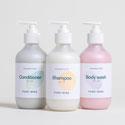
Pure & Mine is a new direct-to-consumer e-commerce hair care brand offering personalized products matching the customer’s preferences based on answers to survey questions on, for example, hair texture, scalp type, hair benefit goals and fragrance choice. The customer also types the name that is added to the label. The brand has chosen this approach to personalization rather than on genetic or lifestyle factors. It offers a product bundle that includes shampoo, conditioner, and body wash.[Image Credit: © Pure & Mine]
Glossier Does Marketing Its Way
 Glossier, the direct-to-consumer beauty brand, continues to grow its following, with increased traffic through its stores and generating some 1.6 million Instagram devotees. Rather than relying on huge ad spending, Glossier has been able to reach its followers on a more personal level, building a feeling of co-creation with the customer. The company’s head of marketing, Ali Weiss, says the brand always puts the customer first, and has built its product and marketing model from the bottom up, through testing and learning, with the customer’s voice as the guide to its holistic approach that integrates product development within marketing. Glossier tracks where the sales originate, such as in-store or on social media, and then try to find out why. Weiss said that the new flagship stores in Los Angeles and New York are less about being a sales channel and more about “putting down roots” and creating an experience, as well as encouraging conversation and trial.[Image Credit: © Glossier Inc.]
Glossier, the direct-to-consumer beauty brand, continues to grow its following, with increased traffic through its stores and generating some 1.6 million Instagram devotees. Rather than relying on huge ad spending, Glossier has been able to reach its followers on a more personal level, building a feeling of co-creation with the customer. The company’s head of marketing, Ali Weiss, says the brand always puts the customer first, and has built its product and marketing model from the bottom up, through testing and learning, with the customer’s voice as the guide to its holistic approach that integrates product development within marketing. Glossier tracks where the sales originate, such as in-store or on social media, and then try to find out why. Weiss said that the new flagship stores in Los Angeles and New York are less about being a sales channel and more about “putting down roots” and creating an experience, as well as encouraging conversation and trial.[Image Credit: © Glossier Inc.]
Digital Brands Are Shaping The Physical Retail Of The Future
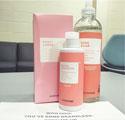 Physical retail is fighting back, although with more than a tinge of e-commerce about it. Digital innovation is being used by brick-and-mortar stores to attract customers, partly because the direct-to-consumer e-commerce startups are opening physical stores. Brandless and Glossier have opened pop-up stores, and Glossier now has a New York flagship outlet. Traditional retailers are bringing D2C startups into their stores: for example, Harry’s Razors in Target and Birchbox in Walgreen’s. Other retailers are using a range of digital initiatives. Macy’s is rolling out a ‘store within a store’ in several locations, branded as Facebook and showcasing best-sellers on Instagram. Digitally-native brands have also been using their online experience to bring new approaches to physical retail, such as online fulfillment to minimize in-store inventory and real estate space.[Image Credit: © Brandless, Inc.]
Physical retail is fighting back, although with more than a tinge of e-commerce about it. Digital innovation is being used by brick-and-mortar stores to attract customers, partly because the direct-to-consumer e-commerce startups are opening physical stores. Brandless and Glossier have opened pop-up stores, and Glossier now has a New York flagship outlet. Traditional retailers are bringing D2C startups into their stores: for example, Harry’s Razors in Target and Birchbox in Walgreen’s. Other retailers are using a range of digital initiatives. Macy’s is rolling out a ‘store within a store’ in several locations, branded as Facebook and showcasing best-sellers on Instagram. Digitally-native brands have also been using their online experience to bring new approaches to physical retail, such as online fulfillment to minimize in-store inventory and real estate space.[Image Credit: © Brandless, Inc.]
bioClarity Is Now Offline Too, Through Urban Outfitters
 Skin care brand bioClarity is just one of the brands making the journey from e-commerce to physical retail, extending its sales channel beyond its own site and on Amazon, with distribution in some Urban Outfitters stores in the US. CEO Rick Sliter said the decision was made because the two brands appeal to similar consumers and distribution in stores like Urban Outfitters adds credibility for bioClarity. Sliter also said that bioClarity liked the way Urban Outfitters curates products offline and online, and the deal allows the skin care brand to reach a larger share of its target demographic. bioClarity has new innovations planned for the next 12 months, including the January launch of Zen, a new serum. [Image Credit: © Adigica BioClarity]
Skin care brand bioClarity is just one of the brands making the journey from e-commerce to physical retail, extending its sales channel beyond its own site and on Amazon, with distribution in some Urban Outfitters stores in the US. CEO Rick Sliter said the decision was made because the two brands appeal to similar consumers and distribution in stores like Urban Outfitters adds credibility for bioClarity. Sliter also said that bioClarity liked the way Urban Outfitters curates products offline and online, and the deal allows the skin care brand to reach a larger share of its target demographic. bioClarity has new innovations planned for the next 12 months, including the January launch of Zen, a new serum. [Image Credit: © Adigica BioClarity]
New D2C Brand Used Gen Z Influencers To Promote Makeup For Kids
 In a trend that is bound to split opinion, beauty influencers are getting younger, aimed at enticing kids to try makeup. Petite ‘n Pretty, a makeup brand for Gen Z, has been launched on Instagram, using school children, typically kids with blogs or YouTube and Instagram followings, as models. Founder Samantha Cutler said there are talented makeup artists (MUAs) as young as 12 years old. One young influencer for example has almost 700,000 YouTube subscribers and over 700,000 Instagram followers. The brand launched in July and has so far generated over 30,000 Instagram followers, targeting the mini MUAs and parents that shop at Sephora or Ulta and want their kids to have cool stuff. Petite ‘n Pretty sells direct through its web site, but is exploring pop-up opportunities and specialty beauty retail stores.[Image Credit: © Petite 'n Pretty LLC]
In a trend that is bound to split opinion, beauty influencers are getting younger, aimed at enticing kids to try makeup. Petite ‘n Pretty, a makeup brand for Gen Z, has been launched on Instagram, using school children, typically kids with blogs or YouTube and Instagram followings, as models. Founder Samantha Cutler said there are talented makeup artists (MUAs) as young as 12 years old. One young influencer for example has almost 700,000 YouTube subscribers and over 700,000 Instagram followers. The brand launched in July and has so far generated over 30,000 Instagram followers, targeting the mini MUAs and parents that shop at Sephora or Ulta and want their kids to have cool stuff. Petite ‘n Pretty sells direct through its web site, but is exploring pop-up opportunities and specialty beauty retail stores.[Image Credit: © Petite 'n Pretty LLC]
Sex Products Are Becoming Mainstream, Added To General Wellbeing
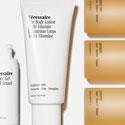 New direct-to-consumer personal care brand Nécessaire has included a sex gel in its line-up, along with a body wash and lotion. The brand’s founders wanted to take it beyond what might normally be expected from a body range. Other brands are bringing sexual health products to market as part of broader beauty and wellness categories. A report from Technavio forecasts 2019 global sexual wellness sales of $32 billion. Launched in the summer, Katie Sturino’s Megafresh feminine wipes are now sold by Ulta Beauty. DeoDoc, a Swedish skin-care brand, sells feminine products like wipes, washes, sprays, and shaving oils for intimate areas. In July, it launched in the U.S. with the D2C Violet Grey brand as part of its Sexual Health and Feminine Care section. Shiseido recently took a minority stake in Violet Grey, and the brand is planning to extend its sexual wellness line. A lube is being added in January. [Image Credit: © Nécessaire Inc]
New direct-to-consumer personal care brand Nécessaire has included a sex gel in its line-up, along with a body wash and lotion. The brand’s founders wanted to take it beyond what might normally be expected from a body range. Other brands are bringing sexual health products to market as part of broader beauty and wellness categories. A report from Technavio forecasts 2019 global sexual wellness sales of $32 billion. Launched in the summer, Katie Sturino’s Megafresh feminine wipes are now sold by Ulta Beauty. DeoDoc, a Swedish skin-care brand, sells feminine products like wipes, washes, sprays, and shaving oils for intimate areas. In July, it launched in the U.S. with the D2C Violet Grey brand as part of its Sexual Health and Feminine Care section. Shiseido recently took a minority stake in Violet Grey, and the brand is planning to extend its sexual wellness line. A lube is being added in January. [Image Credit: © Nécessaire Inc]
Birchbox Still Leads The Way In A Growing Beauty Subscription Field
SoHo Startup Helps Men Keep Their Bathrooms Well Stocked
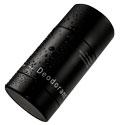
Brian Jeong and Phil Wong are the co-founders of a soap, body wash and deodorant startup based in SoHo, New York. The brand, Hawthorn, recommends products to male buyers based on their body type and lifestyle. It sells the products direct to consumers on the website and aims to leverage the personalization trend to compete with and beat traditional brands like Colgate-Palmolive’s Irish Spring and Procter & Gamble’s Old Spice. Its early days for Hawthorn, which has secured $2.2 million in seed funding, but it has been doubling its customer numbers each month. The subscription model uses an algorithm to analyze answers to an online quiz before recommending products.[Image Credit: © HAWTHORNE LAB INC.]
L’Oréal Creates New Innovation Fund To Invest In High-Potential Startups
 L’Oréal continues to look outside of its walls for innovation opportunities with the launch of a new venture capital fund for taking minority stakes in high-growth-potential startups. The BOLD Business Opportunities for L'Oréal Development fund will consider investing in new business models across a range of functions, from supply chain to retail and marketing. It will support the investments in a number of ways, including mentoring and financial assistance. The fund will build on its external innovation efforts run through partnerships including Founders Factory and Station F. Its first investment will be a minority stake in a French customized fragrance startup, Sillages Paris, which uses artificial intelligence and machine learning. [Image Credit: © L’Oreal group]
L’Oréal continues to look outside of its walls for innovation opportunities with the launch of a new venture capital fund for taking minority stakes in high-growth-potential startups. The BOLD Business Opportunities for L'Oréal Development fund will consider investing in new business models across a range of functions, from supply chain to retail and marketing. It will support the investments in a number of ways, including mentoring and financial assistance. The fund will build on its external innovation efforts run through partnerships including Founders Factory and Station F. Its first investment will be a minority stake in a French customized fragrance startup, Sillages Paris, which uses artificial intelligence and machine learning. [Image Credit: © L’Oreal group]
Glossier Insider Henry Davis Is Seeking Pastures New
 Direct-to-consumer beauty brand Glossier is losing its President and chief financial officer. Henry Davis, who has been with the company since its early says, is leaving to pursue his own business interests. The company now has some 200 employees and is reportedly targeting $100 million in revenue in 2018. Glossier has also grown beyond its online origins to open a flagship store in New York City, but it has so far refused to explore retail partnerships as a means to scale. It has extended internationally, with a move into the UK and Canada last year, and with launches in Ireland, France, Sweden, Denmark this year. Davis, however, is so far keeping quiet about his plans post-Glossier.[Image Credit: © Glossier Inc.]
Direct-to-consumer beauty brand Glossier is losing its President and chief financial officer. Henry Davis, who has been with the company since its early says, is leaving to pursue his own business interests. The company now has some 200 employees and is reportedly targeting $100 million in revenue in 2018. Glossier has also grown beyond its online origins to open a flagship store in New York City, but it has so far refused to explore retail partnerships as a means to scale. It has extended internationally, with a move into the UK and Canada last year, and with launches in Ireland, France, Sweden, Denmark this year. Davis, however, is so far keeping quiet about his plans post-Glossier.[Image Credit: © Glossier Inc.]
Vaseline Is Giving Away Dry Skin Rescue Kits To Help US Residents Deal With The Winter
 Unilever’s Vaseline brand in the US is giving away 1,000 free #SaveMySkin# kits to help people deal with skin problems in the coming winter. The limited period offer, in collaboration with Fooji, an experiential technology platform, invites people in the US to Tweet a custom hashtag and emoji in order to get a kit comprising two Vaseline products – the new Clinical Care™ Extremely Dry Skin Rescue, and well-known Petroleum Jelly – together with a mug, and family games. The brand is also taking to the streets to give away free products. [Image Credit: © Unilever]
Unilever’s Vaseline brand in the US is giving away 1,000 free #SaveMySkin# kits to help people deal with skin problems in the coming winter. The limited period offer, in collaboration with Fooji, an experiential technology platform, invites people in the US to Tweet a custom hashtag and emoji in order to get a kit comprising two Vaseline products – the new Clinical Care™ Extremely Dry Skin Rescue, and well-known Petroleum Jelly – together with a mug, and family games. The brand is also taking to the streets to give away free products. [Image Credit: © Unilever]
Marcia Kilgore’s Latest Startup, Beauty Pie
Copyright 2026 Business360, Inc.

